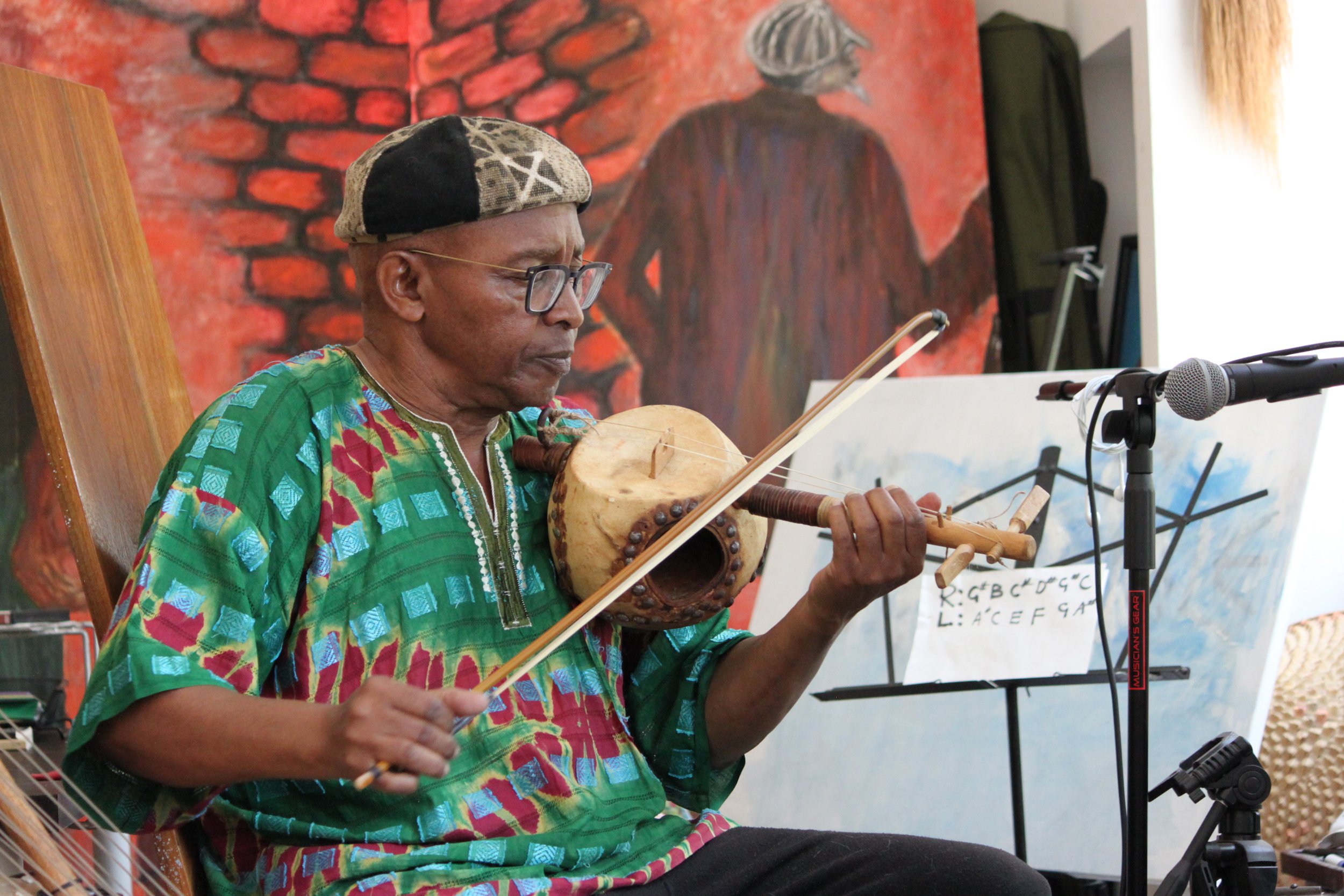
Mogauwane Mahloele
Craftsmanship and musicianship, often seen as different disciplines, intermesh in Mogauwane Mahloele’s life. His art is indicative of his experience. As the son of a musical family (with parents who themselves were children of musicians), he was watched closely as a child to see what talents he might have. My elders taught him not only how to play eight instruments, but also how to make them. It is through this intimate knowledge that he came to understand that the instruments themselves “dictate knowledge” to the musician:
“If I had built a drum and carved it—from scratch—even when it’s standing in the corner… it’s waiting for me to play it and make sense out of it…. Even before you can play, it already… is talking to you, so there is that relationship back and forth…. Not only do I make drums… I come from a background where in order to know how to play this you also have to know how to make it. So you have a total relationship with that instrument. The art is inherent with the drum and in my life.”
In 1975, Mahloele left a family and a country that he loved, knowing that if he stayed, his life would be “wasted” in jail, where his close friends were incarcerated during the apartheid years. He has now been in exile nineteen years. He has chosen not to live in fear and has vowed “not to negate the very strong things” he was raised with.
After floating around in Europe, Mahloele settled in Philadelphia and he made his living teaching music and performing. In the absence of other musicians from South Africa, he has began to nurture an ensemble of diverse African and African American musicians, teaching them traditional music and his own compositions.
Currently living in the city of Los Angeles, Mogauwane has continued to expand upon his artistry. Post-pandemic, Mogauwane has desired to focus on his performance art. As the teacher of a dying art form and a cultural treasure, Mogauwane has indigenous knowledge for those willing to listen.
Mahloele performs widely – from Germany to California, and from Turkey to France, in many styles. He has performed and collaborated with such artists as Homer Jackson, Khan Jamal, Odean Pope, Robert Crowder, Alfie Pollitt, Byard Lancaster, Dudu Phukwana, Phillip Tabane, Joe Malinga, Hugh Masekela and the Art Ensemble of Chicago. Mahloele has received grants from The Pew Fellowships in the Arts and the Pennsylvania Council on the Arts, and has worked with the Folklore Project in arts education residencies: “Philly Dance Africa,” “Artists in Exile,” and “Folk Arts of Social Change.”